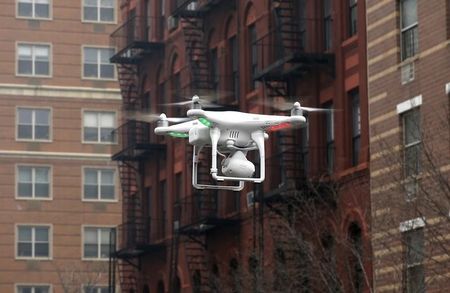By AARON MENDELSON
SAN FRANCISCO (Reuters) - The California State Senate passed legislation on Tuesday imposing strict regulations on how law enforcement and other government agencies can use drones, a move supporters said will protect privacy and prevent warrantless surveillance.
The bill attracted bipartisan support in the Senate, passing 25-8 during the evening vote in Sacramento.
The legislation would require law enforcement agencies to obtain a warrant before using an unmanned aircraft, or drone, except in emergencies such as a fire or a hostage-taking.
Other public agencies would be able to use drones, or contract for their use, to achieve their "core mission," so long as that mission is not to gather criminal intelligence.
"The potential for abuse of drones is high and we need to be vigilant to ensure our Constitutional rights are protected," said the bill's co-author, Democratic Senator Ted Lieu.
Idaho and Virginia have also passed laws restricting uses of pilotless aircraft because of privacy concerns.
The California law would require that data, video or photos collected from drones be destroyed by public agencies within a year, except in certain cases.
Los Angeles Mayor Eric Garcetti supported the new regulations but the measure faced opposition from law enforcement groups, including the California Police Chiefs Association and the California State Sheriffs' Association.
The legislation "is an inappropriate attempt to impose search and seizure requirements on California law enforcement agencies beyond what is required by the 4th Amendment of the United States Constitution," the Los Angeles District Attorney's Office said in their opposition to the bill.
The Federal Aviation Administration currently bans the commercial use of drones in the United States and is under growing pressure to set rules that would permit their broader use.
The FAA estimates that 30,000 drones could be in operation in less than 20 years.

The bill, AB 1327, next returns to the California Assembly for a concurrence vote on amendments made in the Senate. If it passes there it will make it to Governor Jerry Brown's desk for final approval.
(Editing by Victoria Cavaliere and Paul Tait)
